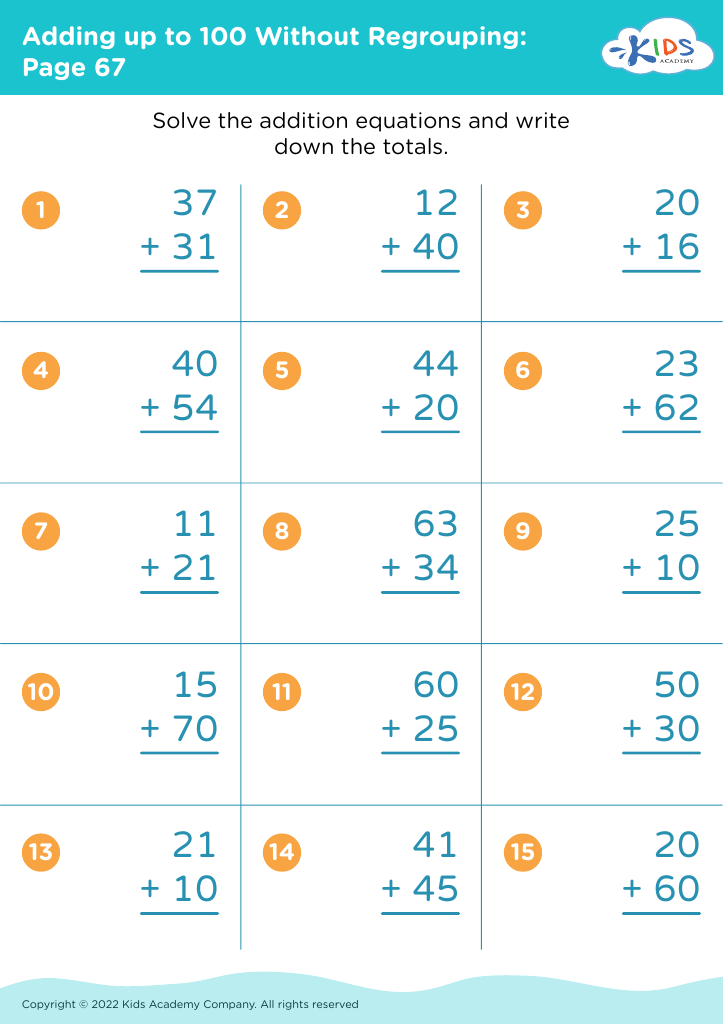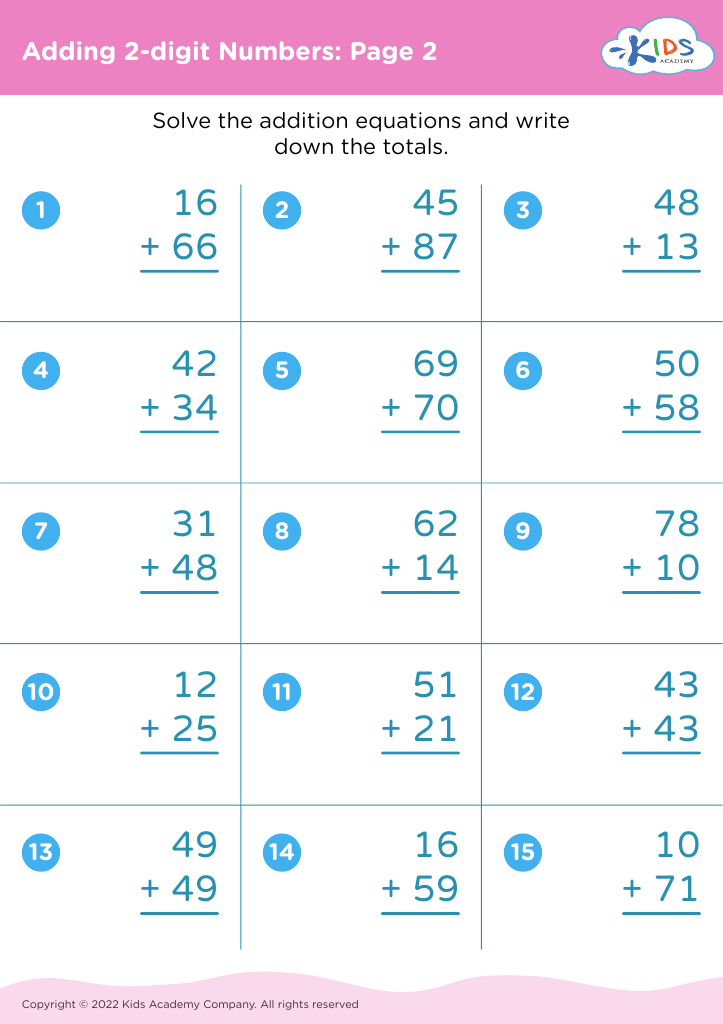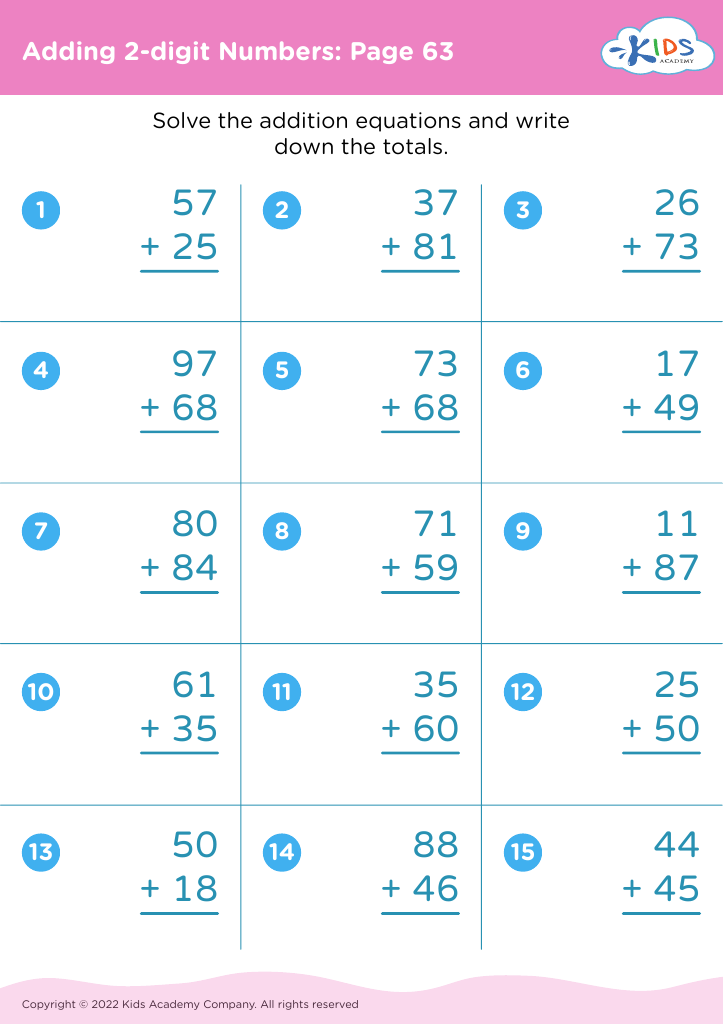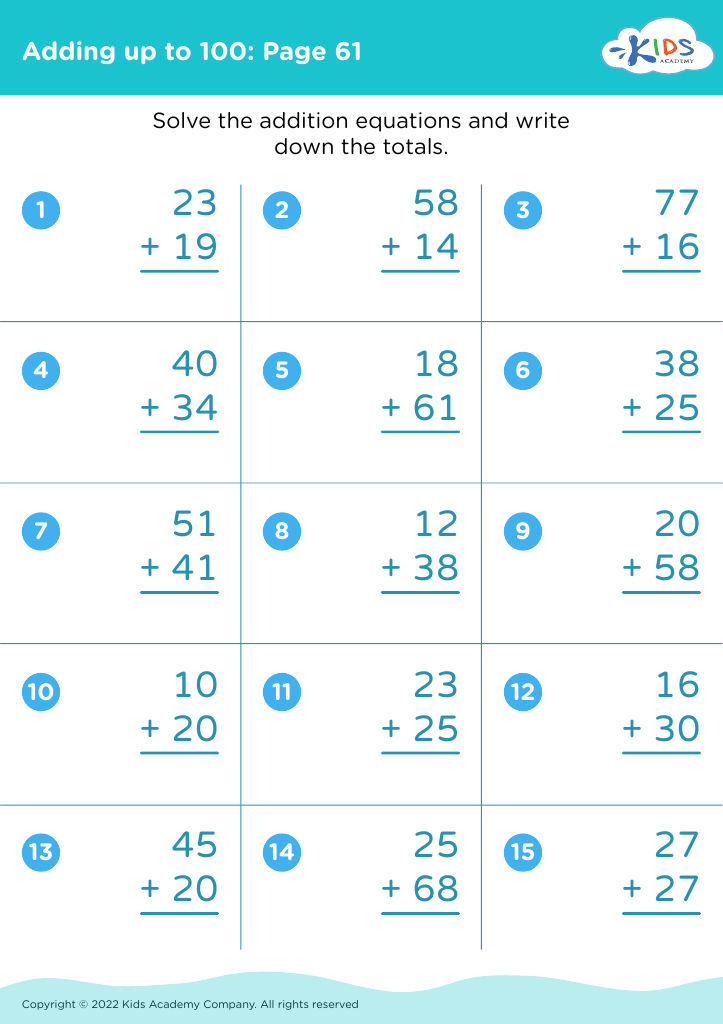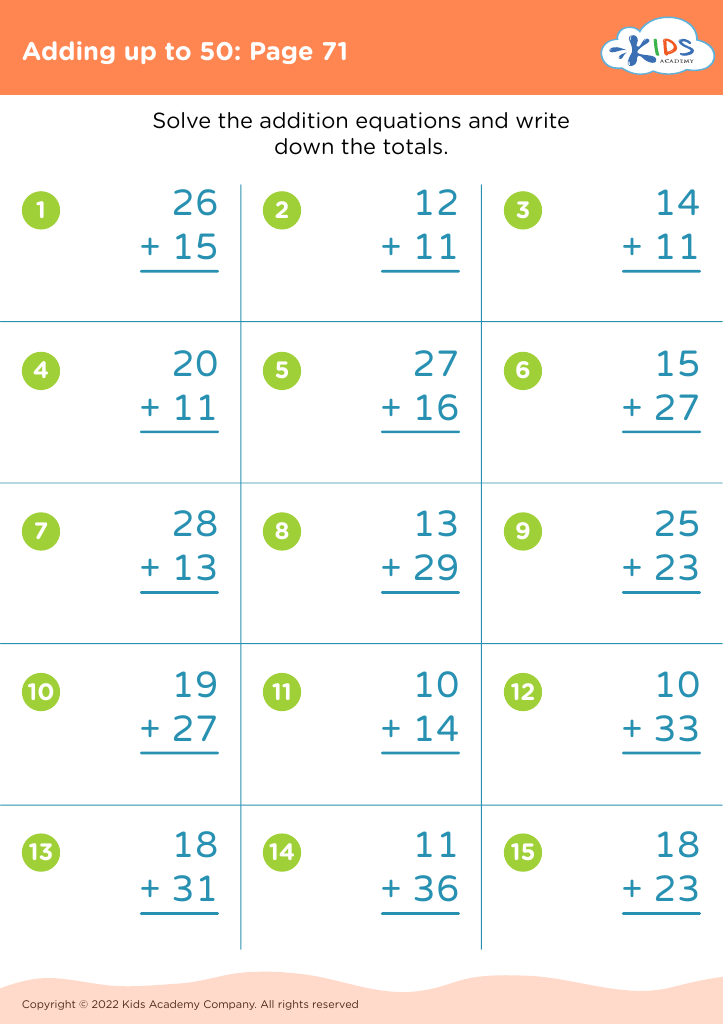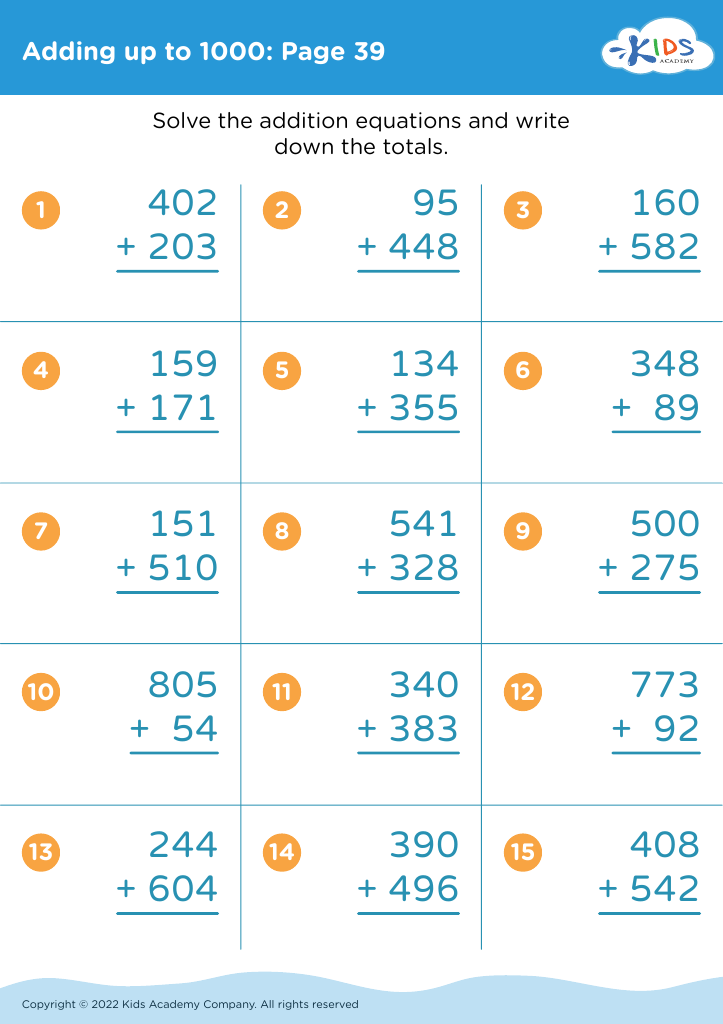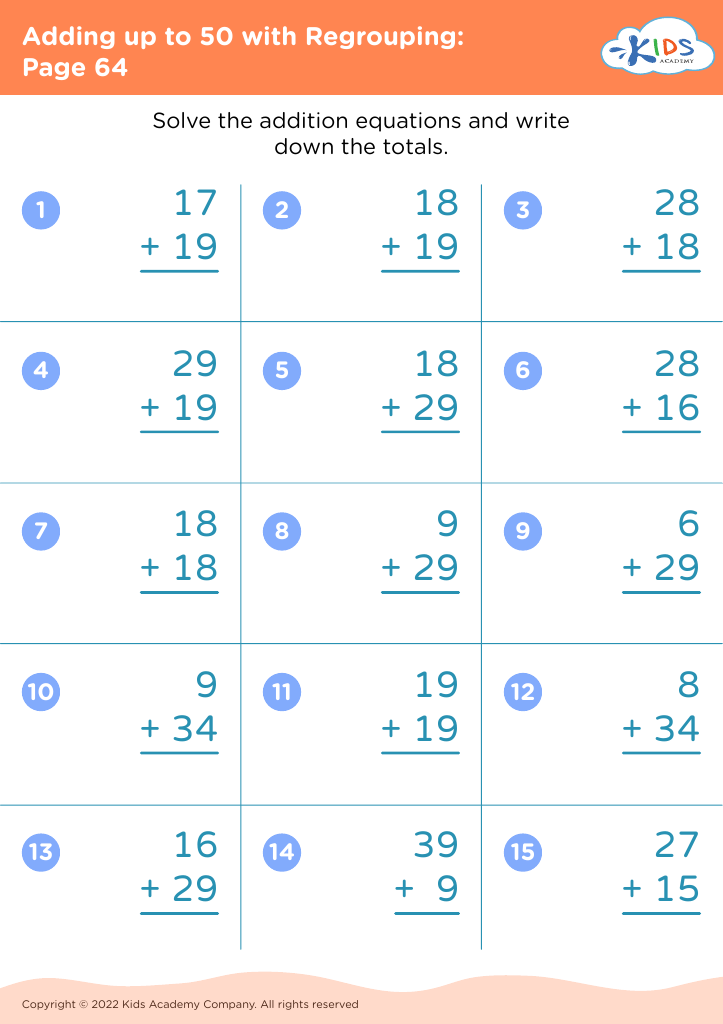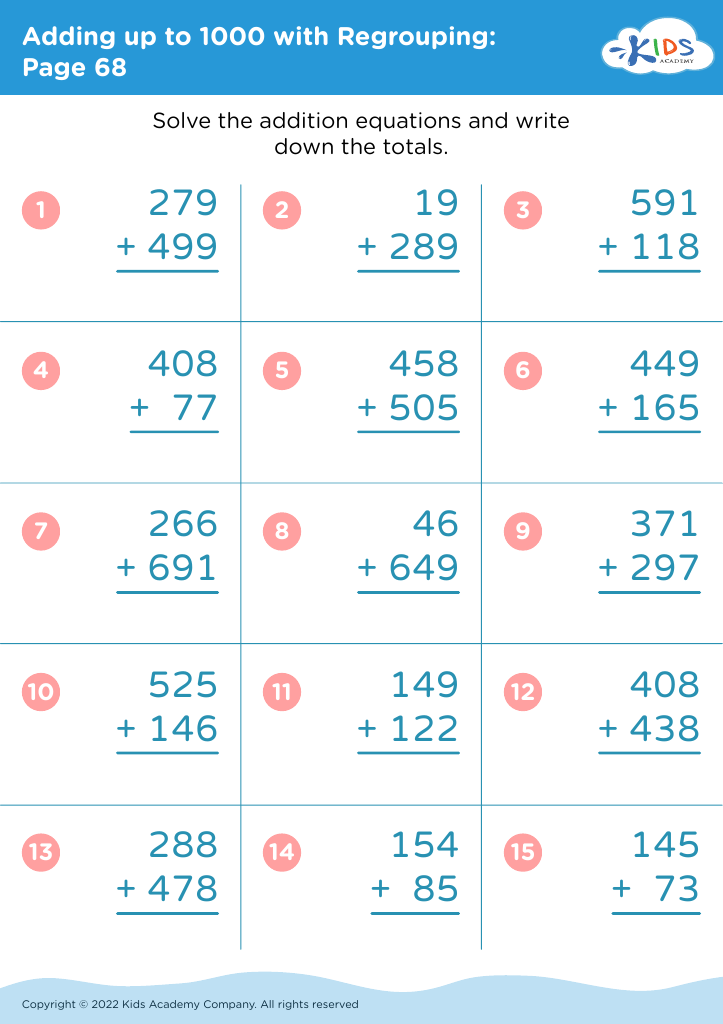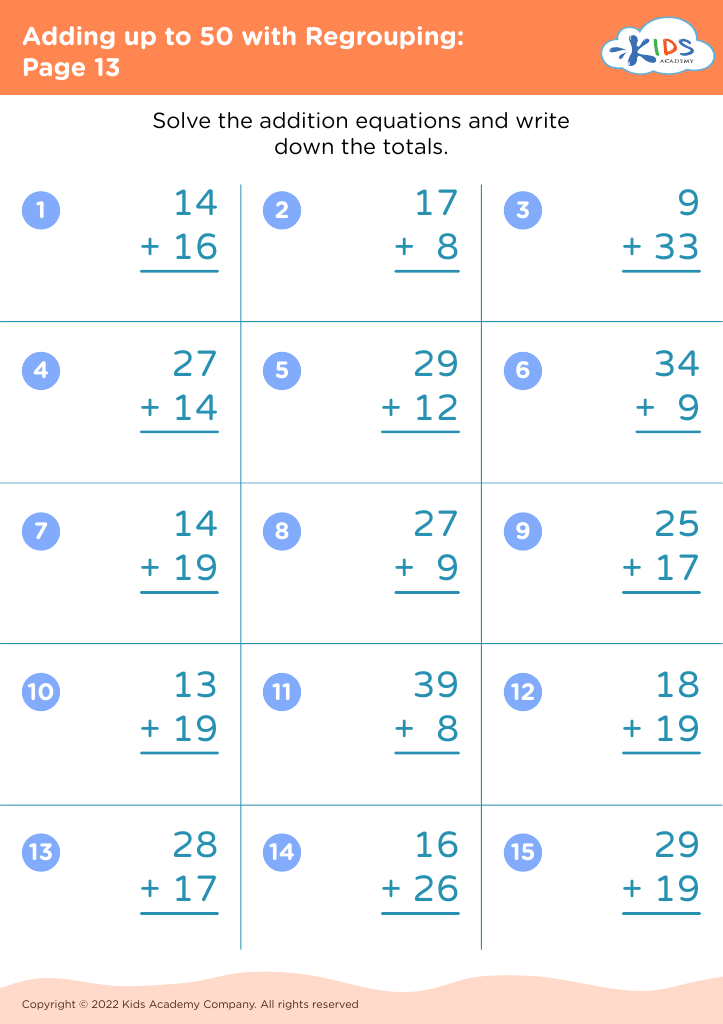Cognitive Development Addition Worksheets for Ages 6-7
18 filtered results
-
From - To
Boost your child's cognitive development with our engaging addition worksheets designed specifically for ages 6-7. These activities enhance critical thinking skills, numerical understanding, and problem-solving abilities while making math fun and interactive. Perfect for reinforcing classroom lessons or supplementing home learning, our worksheets feature a variety of formats, including puzzles, games, and visual challenges. Each resource is crafted to inspire young learners and build confidence in their mathematical skills. Watch your child thrive as they explore the world of addition through stimulating exercises that encourage creativity and logical reasoning. Start the journey to math mastery today!
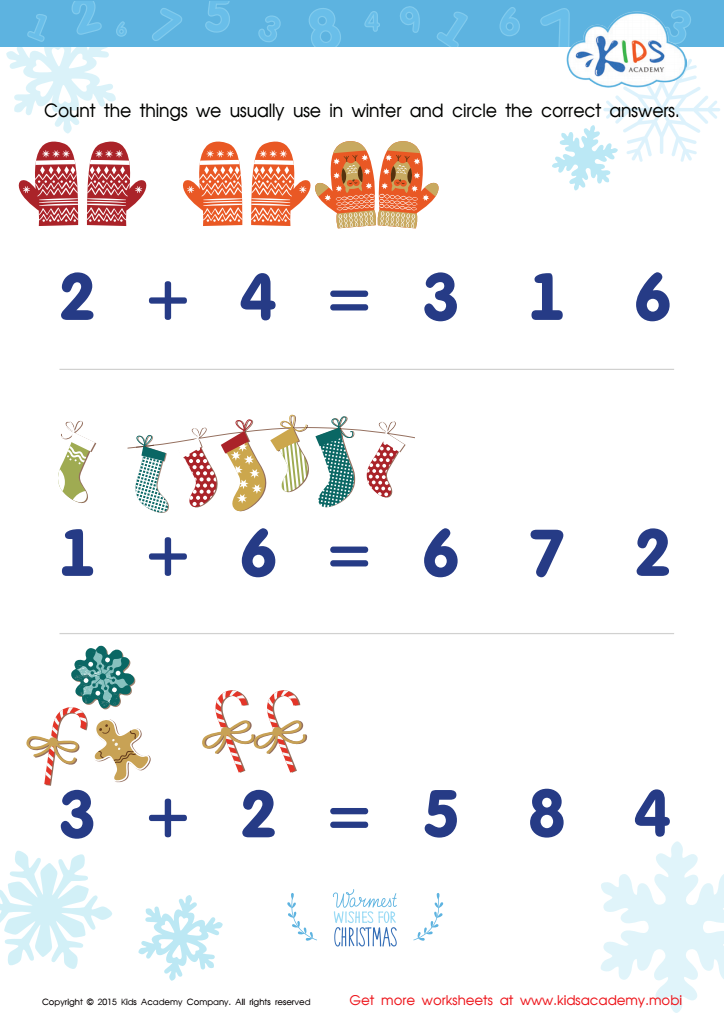

Count Winter Things Worksheet
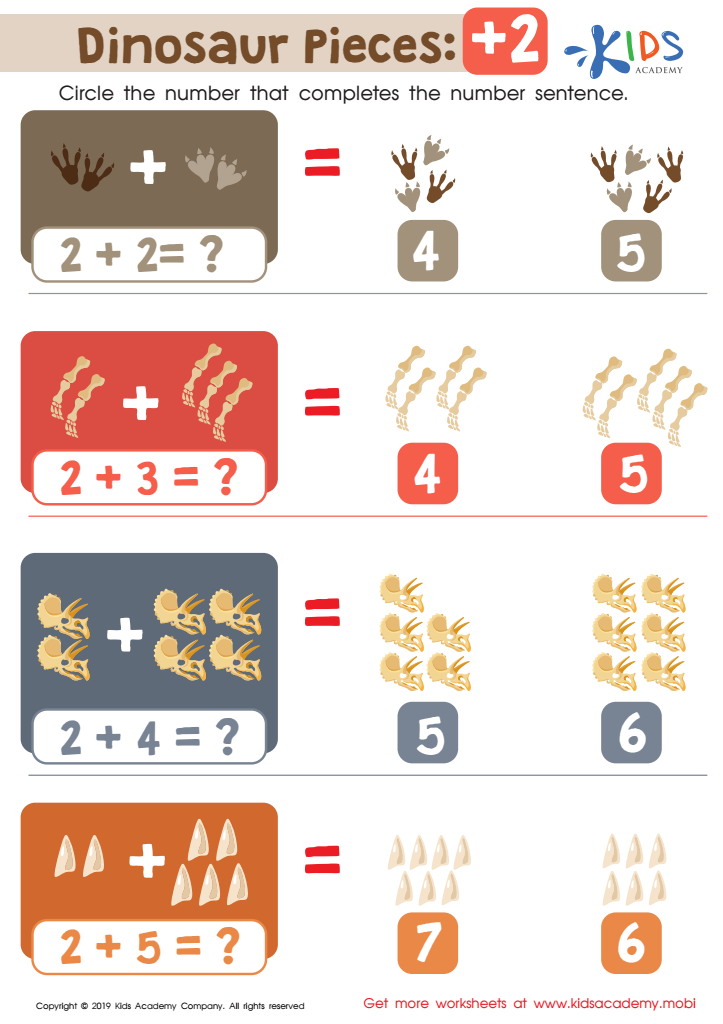

Dinosaur Pieces: +2 Worksheet
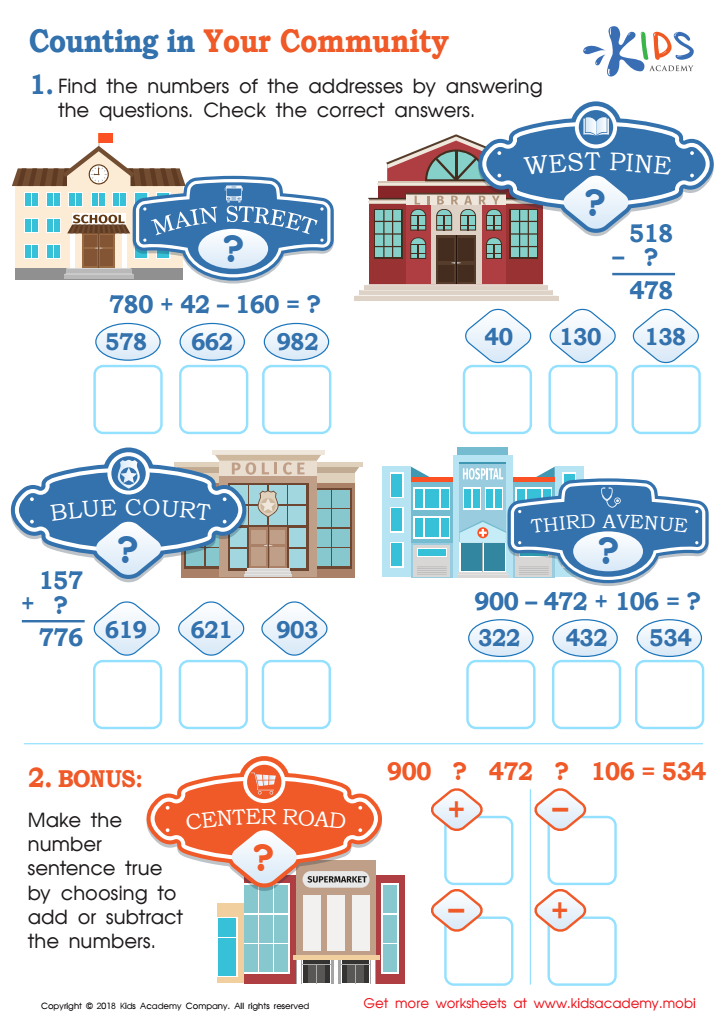

Counting in Your Community Worksheet
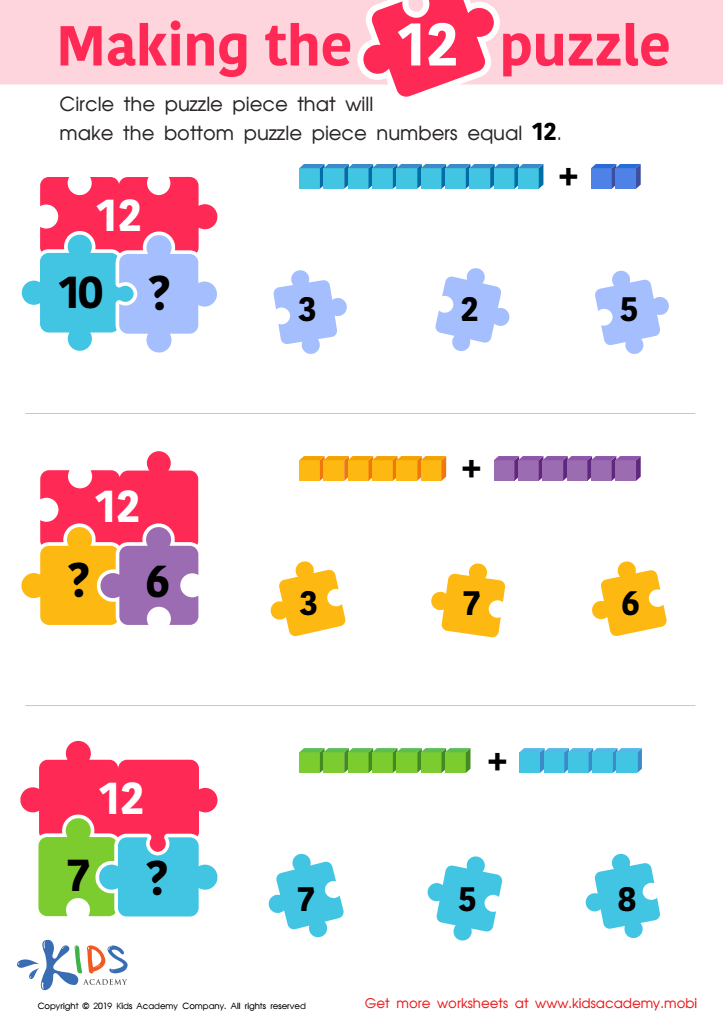

Making the 12 Puzzle Worksheet
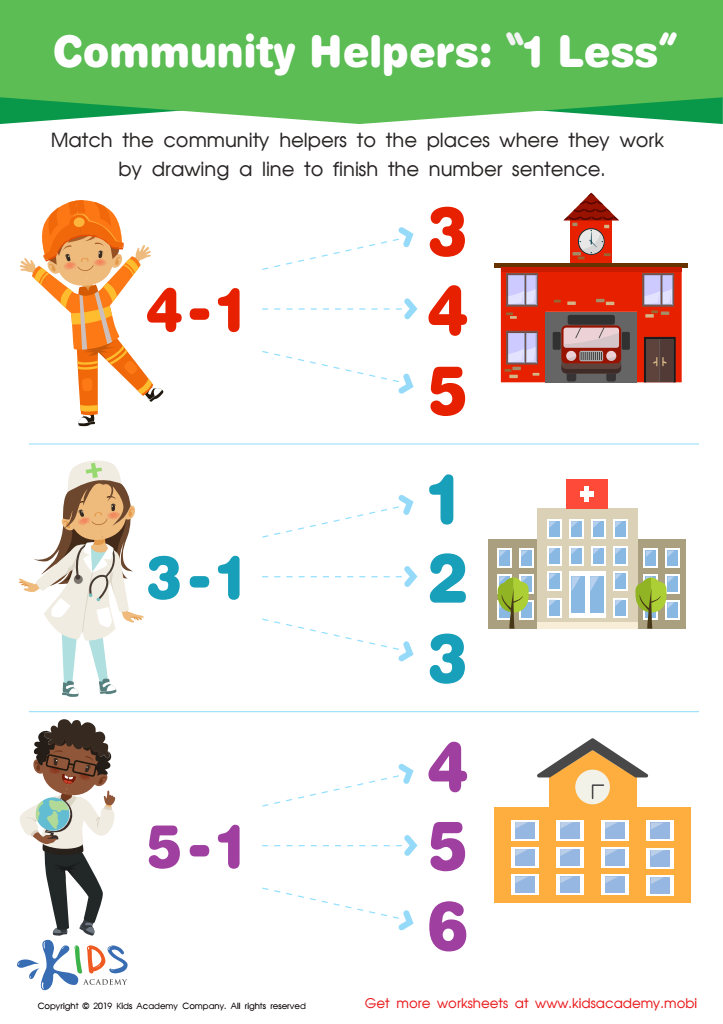

Community Helpers: 1 less Worksheet
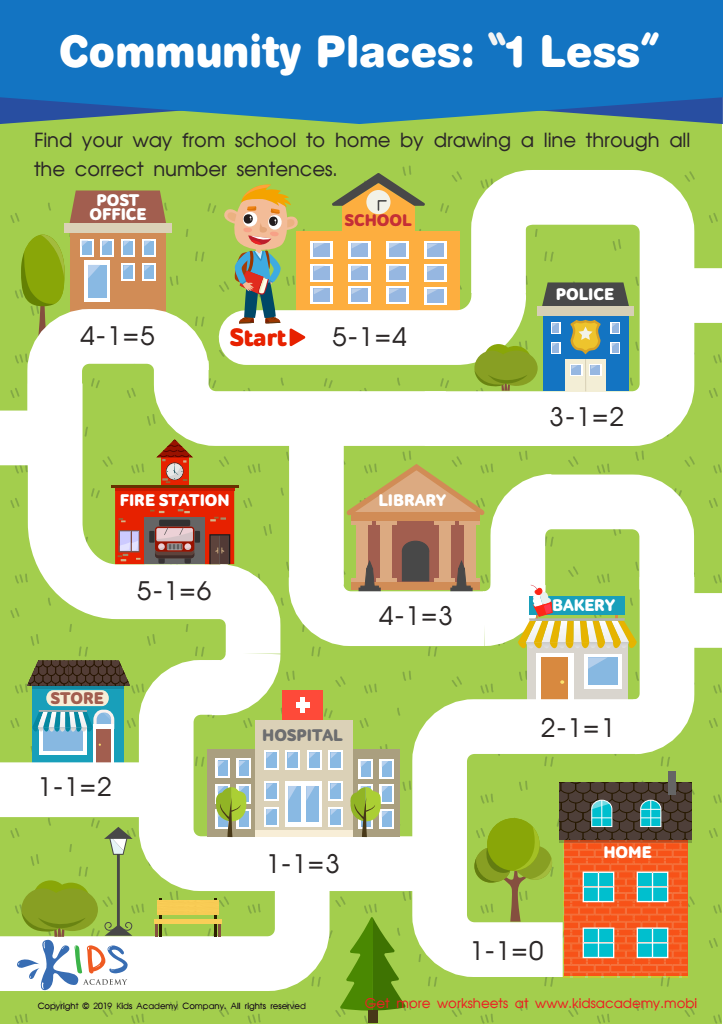

Community Places: 1 Less Worksheet
Cognitive development in children aged 6-7 is critical as it lays the foundation for future learning and problem-solving abilities. At this age, children progress from basic counting to understanding concepts of addition, as they begin to grasp abstract thinking and logic. This developmental stage is characterized by an increased ability to think critically, recognize patterns, and develop reasoning skills, all of which are essential for effective learning.
Parents and teachers should be particularly attuned to cognitive development in addition because it directly influences a child's confidence and interest in math—subjects that play a vital role throughout their educational journey. Mastering addition helps children tackle more complex mathematical concepts later on, fostering a positive attitude towards learning. Moreover, activities that engage cognitive skills through addition can enhance memory, attention span, and social skills during collaborative exercises.
Encouraging cognitive development involving addition not only aids in academics but also nurtures essential life skills such as decision-making and logical reasoning. By supporting and facilitating these skills, parents and teachers ensure children are better prepared for their educational careers and everyday problem-solving tasks, ultimately promoting a lifelong love for learning and academic success.

 Assign to My Students
Assign to My Students
